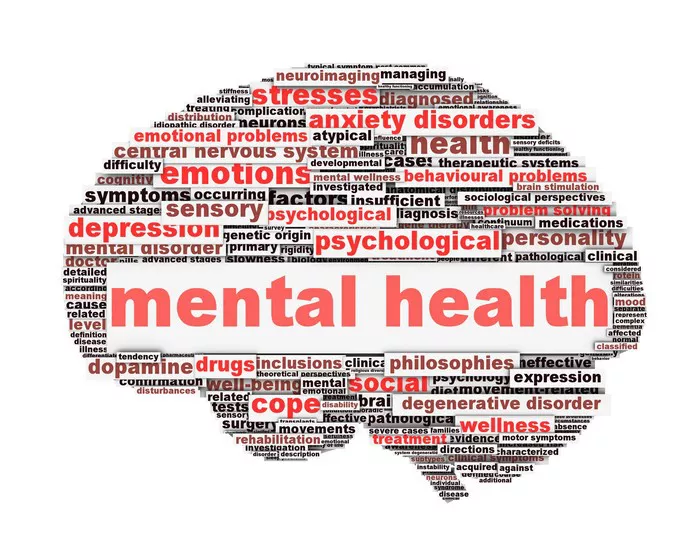In today’s society, mental illness is increasingly recognized as a significant health concern, affecting millions of individuals worldwide. Beyond its impact on emotional well-being, mental illness can also have profound effects on one’s financial stability and access to essential resources. Fortunately, various benefits and support systems exist to assist those managing mental health conditions. In this comprehensive guide, we’ll explore the benefits available to individuals with mental illness, ranging from financial assistance to therapeutic interventions and community resources.
Disability Benefits
For individuals whose mental illness significantly impairs their ability to work, disability benefits can provide crucial financial support. These benefits are typically offered through government programs and private insurance policies. To qualify for disability benefits, individuals must demonstrate that their mental health condition meets specific criteria outlined by the respective program or insurer. This often involves providing medical documentation from healthcare professionals detailing the diagnosis, symptoms, and functional limitations caused by the illness.
Government disability benefits may include Social Security Disability Insurance (SSDI) or Supplemental Security Income (SSI) in the United States, Disability Living Allowance (DLA) or Personal Independence Payment (PIP) in the United Kingdom, and similar programs in other countries. Private disability insurance policies offered by employers or purchased independently may also provide income replacement for individuals unable to work due to mental illness.
Healthcare Coverage
Access to comprehensive healthcare coverage is essential for managing mental illness effectively. Many health insurance plans, including those provided by employers and government-sponsored programs such as Medicaid and Medicare, offer coverage for mental health services. This coverage may include outpatient therapy, psychiatric consultations, prescription medications, and inpatient treatment, depending on the specific plan and its terms.
The Mental Health Parity and Addiction Equity Act (MHPAEA) in the United States mandates that insurance plans offering mental health benefits must provide coverage on par with coverage for physical health conditions. This legislation aims to ensure that individuals with mental illness receive equitable access to necessary treatment without facing excessive financial barriers.
Housing Assistance
Stable housing is a fundamental aspect of overall well-being, particularly for individuals managing mental illness. Housing assistance programs can provide support in obtaining and maintaining safe, affordable housing. These programs may include rental subsidies, supportive housing arrangements, and transitional housing options tailored to the needs of individuals with mental health conditions.
In the United States, programs such as the Housing Choice Voucher Program (Section 8), Supportive Housing for Individuals with Disabilities, and Shelter-Plus Care offer housing assistance specifically targeted at individuals with disabilities, including mental illness. Additionally, nonprofit organizations and community agencies often provide supportive services to help individuals secure and retain stable housing while addressing their mental health needs.
Employment Support
Employment can play a vital role in promoting recovery and self-sufficiency for individuals with mental illness. However, maintaining employment while managing symptoms can present significant challenges. Employment support services aim to assist individuals with mental health conditions in finding and maintaining suitable employment, accommodating their needs in the workplace, and developing skills for success.
Vocational rehabilitation programs, offered through government agencies and community organizations, provide job training, career counseling, and placement services tailored to individuals with disabilities, including mental illness. Supported employment programs offer ongoing assistance and accommodations to help individuals succeed in competitive job settings, fostering independence and financial stability.
Social Services and Community Support
Beyond financial assistance and healthcare coverage, individuals with mental illness benefit from access to social services and community support networks. Peer support groups, led by individuals with lived experience of mental illness, offer a valuable source of empathy, understanding, and practical advice for navigating the challenges of mental health recovery.
Community mental health centers provide a range of services, including counseling, case management, and crisis intervention, to support individuals in managing their mental health needs effectively. These centers often collaborate with other social service agencies, healthcare providers, and advocacy organizations to ensure holistic support for individuals with mental illness and their families.
Conclusion
Living with mental illness presents unique challenges, but individuals facing these challenges are not alone. A range of benefits and support systems exist to assist individuals in accessing essential resources, maintaining stability, and pursuing their goals for recovery and well-being. By understanding and accessing available benefits, individuals with mental illness can enhance their quality of life and thrive in their communities.
[inline_related_posts title=”You Might Be Interested In” title_align=”left” style=”list” number=”6″ align=”none” ids=”5913,5915,3343″ by=”categories” orderby=”rand” order=”DESC” hide_thumb=”no” thumb_right=”no” views=”no” date=”yes” grid_columns=”2″ post_type=”” tax=””]
































